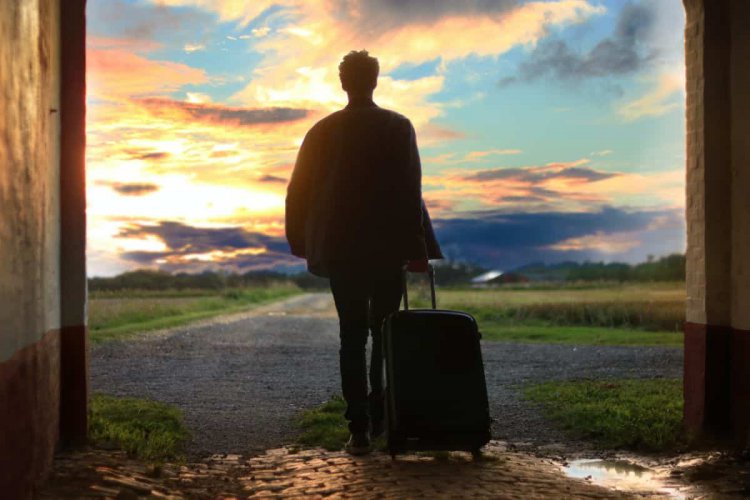Southeast Asia provides the silver lining to the tourism industry with efficient control and management of the Covid19 pandemic which reflects the resolve and determination of the people involved in this industry to bounce back into business. With thousands of jobs already lost in the travel and hospitality segment, and a few thousands coming on the chopping block in this month and the next, we must look at what are the green shoots on the surface that bring hope amid despair and uncertainty in this gloomy situation.
Two and a half months into the lockdown or movement control order or circuit breaker, as we have heard these terms used in different parts of Asia and the world, we have witnessed some really dramatic and encouraging incidents all over the world. Stories of human emotions, benevolence, compassion, grit, and determination abound. Animals have not lagged far behind, too, and they have also shown positivity and patience and utilised these peaceful times to see the cities and towns they could not earlier, due to human rush and selfish interventions.
These 60 to 90 days have been tough on people, especially for the poor and underprivileged, those who have been earning livelihoods through daily wages, who have been waiting with bated breath everyday for the markets to open, and businesses to start. It has happened to the employees in the service industry as a whole, but is more pronounced in the tourism and hospitality industry as this sector does not foresee a recovery anytime soon in 2020. Contrary to what many people think, travel is not a high profit margin business, but it gives a decent return on volume and high traffic, and if a company is into providing more than one service without adding manpower and other fixed cost.
Thus it is difficult for an agency to sustain cash outgo without having any revenue generating source. Jobs across hierarchy have been lost as cutting cost is on top of the agenda for the management and business owners. Some of the high paying job positions too have suffered or have been asked to continue without salary, if pink slips have not been given. As I write this, shopping malls, salon & spa, gym, and cinema halls have still not been allowed to open in many of the larger cities with wealthy populations. It means the local government in many cities and states are not fully confident of stopping the pandemic from spreading.
“We travel not to escape life but for life not to escape us.”
The future of travel, a near nine trillion USD global industry, hinges on three factors: economic recovery leading to growth in business travel, discovery of a Vaccine for Coronavirus and stability in the aviation sector. Aviation has been one industry that most of the time, runs under stress of managing operation costs and improving services without increasing cost. During this pandemic, we have already seen some large and reputed airlines like Virgin Australia, Compass Airlines, and FlyBe going bankrupt, and many like Air France, KLM, and Lufthansa mulling mergers to survive in future. Some of them like Thai Airways may survive only due to infusion of fiscal stimulus provided by their governments or by their bankers. In the USA, the government has announced a 58 billion USD stimulus to the airline industry. As per IATA estimates, the airline industry globally stands to lose close to 314 billion USD.
There have been quite a few promising developments in other parts of the world, in Europe and in Southeast Asia, where countries like Germany, Spain, and Italy have started opening borders to encourage tourism. Vietnam has wonderfully contained the pandemic with hardly a few hundreds of infected cases, and is a fully recovered country for the last three weeks, and has already been promoting domestic tourism. Thailand too, has been successful at managing the spread of infection and have started domestic flights since May, and in all probability are going to permit some international flights from select countries from July onwards.
Thailand’s neighbours like Cambodia, Malaysia, Myanmar, Laos, and Vietnam are going to support its opening of the tourism industry as they stand to gain through travel across borders. There have been some peculiar trends too, such as in the USA, where vacation rentals saw a rise in bookings, even during May, as people stuck in their homes for months desperately wanted to move out of the comfort of their houses. So much so, even Airbnb joined the league of vacation rental program sites.
Travel post-pandemic is not going to be the same as pre-Covid19 days, and it’s not difficult to guess, as strict measures to maintain distancing, and avoiding large gatherings shall be in place, coupled with mandatory use of face masks in public places and inside cars or buses. Whether it’s shopping malls or tourist attractions, strict adherence to hygiene and sanitation standards shall be in place. Travelers will also be required to travel with health certificate and medical test reports from their country of origin. Upon arrival at the airport, if a traveler is found to be showing symptoms of fever or cough or anything indicating corona infection, he or she would be sent to quarantine at a personal cost. Even for island tours or jungle safari or for any cultural show, there would be a limit on the number of admissions on a given day.
While hotels and resorts have also passed through challenging times, having been forced to close down shutters due to health risks and instructions from the government and their own management, they had to incur a fixed cost to maintain their premises and also salary of staff, they would be more than eager to welcome travelers again, and might go on to offer some great deals and incentives on long stays, but they will also go a few extra miles to preserve their brand through deploying all safety and hygiene measures in their restaurants and public areas such as salon or fitness center. Thailand’s hotel industry and tour operators are all set to come out with some attractive booking options for tour packages to attract visitors from abroad.
The sentiments of people worldover during this pandemic has been one of compassion and empathy, and for many of the people among all economic strata, this crisis and resulting lockdown has proved to be a very frustrating experience. People realise this is different from an economic recession or a financial meltdown, so we all have been holding each other’s hands and waiting for the brighter days to come, without having any grudges against a set of people or a community or government. People have lost jobs in the past as well due to bad performance of their companies or because of poor economy and curtailed growth in trade and business. In the current scenario, people have lost jobs but have probably not lost hope.
We have surveyed randomly a small group of people who have been sort of frequent travelers over the past years, and they have expressed the desire to travel to their dream destinations if the mandatory quarantine is done away with and adequate safety and hygiene measures are taken by the government and civic authorities of the destination they are traveling to. Some of the wealthier travelers are even willing to pay a little extra for hotels and resorts who have added protection and sanitation measures for the guests.
Over the last decade, travel has been a symbol of high class lifestyle and a way to express themselves for many people, in even the middle-income category. The millennials and generation Z’s are especially hooked on to travel; for adventure, fun, and learning. There is a category of people who just want to de-stress by visiting their favourite shopping and nightlife destinations. And then there are some niche travelers who travel for spiritual pursuit, viz., wellness & spa, mental rejuvenation, detoxification, meditation & yoga, and some go on to enjoy culinary experience, art, history, and culture.
I see a great future for tourism, and not very far ahead, too. If the coming two months see some positive signs worldover in containing the pandemic, and if the airlines industry support travel through attractive airfares, the tourism industry will begin to take small strides and may start seeing a turnaround by the last month of 2020. I am sure that the countries in west Europe which are not so highly populated as their Asian counterparts, with their disciplined population, will be able to take advantage of the remaining few months of the current summer season.
Adding on to this, the other tourism hotbed of the southeast Asian nations comprising Thailand, Indonesia, Malaysia, Vietnam, The Philippines, Singapore and others shall also gradually test the waters allowing people to travel in restricted numbers during the 3rd quarter of 2020, and if all goes right, shall be ready to go big in attracting tourists for the winter months. If European countries, and China, who are among the drivers of the travel industry with around 2.5 trillion USD potential, are able to send even 50% of their potential outbound travelers to European or Asian destinations, these big markets will rebound, which will provide a big fillip to the global tourism industry.
If the current severely affected countries like USA, India, and UK also see some outbound travel by the last quarter of 2020, the year that started off with a global gloom will have a not so gloomy ending, and something that the global economy is keenly and desperately looking forward to.
Travel is a major component of the GDP of all developed and developing countries. It drives some major value creators that in turn drive the core industries. These value creators include the corporate travel and MICE industry, mega sporting events, mega trade promotion exhibitions, cultural events, weddings, fashions shows, and so on. And these further drive the major consumer industries such as food & beverage, automobile, agriculture, refrigeration & air-conditioning, designer garments, high end cosmetics, luxury footwear, and so on.
It would be interesting to see how fast the Asian travel industry revives and how many of the 70mn+ workforce are able to return to their dream jobs at the earliest. Travel and vacation bring smiles to everyone’s faces. Let’s hope that 2020 passes off as a bad dream and a reminder to mankind to create a balance between nature and materialism, and that we lead a minimalist lifestyle. This is important because we have seen how an invisible enemy has proven to be a big leveler, in a sense that it has exposed the weaknesses of wealthy and developing countries alike.
“Life begins at the end of your comfort zone.”
















